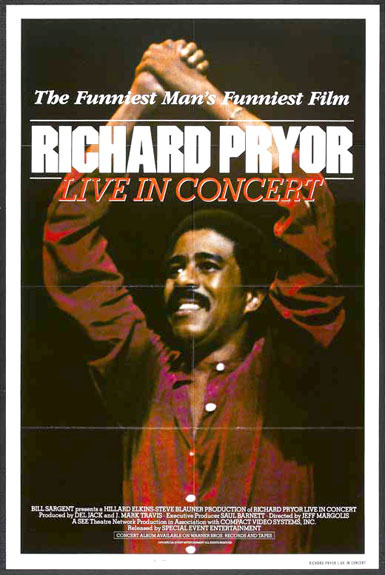Seeing a great stand-up comedy performance in person is a sublime experience that, when captured on records or TV, is more like an echo of that live show: Something to be filed away and occasionally re-experienced, but ever fading in impact.
Little wonder then that the theatrical stand-up concert film is a rarity. Drawing paying audiences into the theater to catch a movie of a live performance has, historically, been a non-starter. It begs the question — what makes a successful stand-up film?
“Kevin Hart: Laugh at My Pain” (2011) — The diminutive Hart has been the sole box office success story in recent memory, with this concert film grossing nearly $8 million.
Hart’s a funny guy whose energetic stage persona helps approximate the live concert experience. Much of the film’s success, however, stems from Hart’s careful cultivation of a loyal, largely African-American audience who, eager to support a comic with an authentic voice they respond to, follow him into theaters.
With his new concert film “Let Me Explain” coming out Friday, look for Hart to maintain his position as the lone working comic who can put butts in movie seats. (Although it would seem none of those butts will come from Maine: “The whitest state in the union” doesn’t have a single theater showing the film, from what I can see.)
“Margaret Cho: I’m the One That I Want” (2000) — Another unique performer who turned her niche status into a lucrative concert film, Cho’s movie was a surprise hit, returning $1.2 million on its meager budget. For Cho, it’s a combination of her fearless honesty, taboo-smashing outrageousness and a cult following from the gay community (not to mention the fact that she’s very funny) that carried her film into the black.
“Bill Cosby: Himself” (1983) — While his film career was bombing spectacularly (“Ghost Dad,” “Leonard Part 6”), the Cos put out this unassuming, low-budget concert flick, and audiences ate it up like so much delicious pudding of a particular brand. For Cosby, the secret to theatrical success was simple: People just love the Cos, and going to see his film was a funny, comfortable night out for fans and their families.
“Eddie Murphy Raw” (1987) — If Cosby meant comfort, then the young Murphy meant one thing — star power. For a too-brief time (before his bewildering devolution into a family-friendly punch line), there was simply no more electric, charismatic performer in any medium than Eddie Murphy. Exploding out of “SNL” and into feature films and one stunning (if regrettably homophobic) HBO special, it was practically pre-ordained that Eddie would bring the stand-up film back to prominence.
While “Raw” is disappointingly undisciplined, rule Murphy did, with the film grossing an astounding $50 million despite (or perhaps because of) its unprecedented vulgarity (it contains more “f-bombs” than “Scarface”). At the peak of his fame and comedic prowess, Murphy was comedy’s Elvis, and fans turned out in droves.
“The Original Kings of Comedy” (2000) — Another example of the black community rallying behind a film that promised to speak to their experience, this four-man film from director Spike Lee gathered D.L. Hughley, Cedric the Entertainer, Steve Harvey and Bernie Mac. Their combined star power brought in 10 times the film’s $3 million budget theatrically, and spawned a spate of similarly-named films intended to reach specific target audiences (“The Queens of Comedy,” “The Latin Kings of Comedy,” etc.).
“Richard Pryor Live in Concert” (1979) and “Richard Pryor Live On The Sunset Strip” (1982) — The success of these, by a wide margin the best stand-up films of all time, can be attributed to the fact that Pryor at his height was a scarred, brilliant, blessedly profane genius whose performances in these two films bridged the gap between audience and performer more audaciously than anyone before or since.
If Eddie was electric and Cosby beloved, Pryor was held in awe. Even through the intermediary of film, an evening with Richard Pryor was like watching a pitcher throwing a no-hitter, every joke laden with brilliance and the possibility of disaster, eventually emerging as something like art. And well worth the price of admission.
Dennis Perkins is a Portland freelance writer.
Send questions/comments to the editors.



Success. Please wait for the page to reload. If the page does not reload within 5 seconds, please refresh the page.
Enter your email and password to access comments.
Hi, to comment on stories you must . This profile is in addition to your subscription and website login.
Already have a commenting profile? .
Invalid username/password.
Please check your email to confirm and complete your registration.
Only subscribers are eligible to post comments. Please subscribe or login first for digital access. Here’s why.
Use the form below to reset your password. When you've submitted your account email, we will send an email with a reset code.